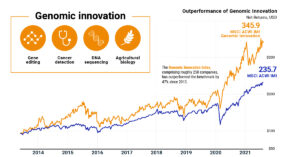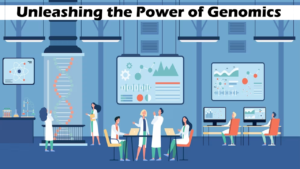Introduction

In the realm of healthcare, one size does not fit all. Each individual is unique, from their genetic makeup to their lifestyle choices and environmental exposures. Recognizing this diversity, the field of medicine is undergoing a profound transformation known as precision medicine. At its core, precision medicine aims to provide personalized healthcare by tailoring treatments and interventions to the specific characteristics of each patient.
The Genomic Revolution

The concept of precision medicine, or tailoring medical treatments to individual patients, has been propelled into reality by the genomic revolution. Our ever-deepening understanding of the human genome – the complete set of an individual’s DNA – has paved the way for personalized medicine1.
Unleashing the Power of Genomics

Historically, medicine relied on a one-size-fits-all approach. Treatments and interventions were designed based on what worked for the majority of patients. However, this approach often overlooked the fact that individuals are genetically distinct, and their responses to treatments can vary significantly. The human genome contains a staggering amount of information that holds the key to unraveling these differences.
Decoding Genetic Makeup

Advancements in DNA sequencing technologies have drastically reduced the cost and time required to sequence an individual’s genome. Today, it’s feasible to decode an individual’s genetic makeup in a matter of hours, opening up a world of possibilities for personalized medicine. Genomic information offers insights into various healthcare aspects:
- Disease Predisposition: Genomics can reveal genetic mutations that predispose an individual to certain diseases, such as breast cancer or Alzheimer’s disease. Armed with this knowledge, healthcare providers can implement targeted preventive measures.
- Tailoring Treatments: By analyzing an individual’s genetic profile, physicians can determine which medications are likely to be most effective and which may cause adverse reactions. In oncology, genomic testing identifies specific mutations driving a patient’s cancer, allowing for precisely targeted therapies.
- Rare Diseases: Genomics has been a game-changer in diagnosing previously undiagnosed or misdiagnosed conditions. Genetic sequencing provides relief and answers to countless patients and their families.
- Predicting Disease Risk: Machine learning algorithms analyze genetic and health data to assess an individual’s susceptibility to specific diseases.

